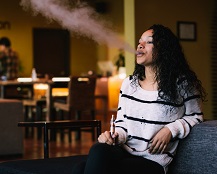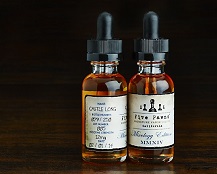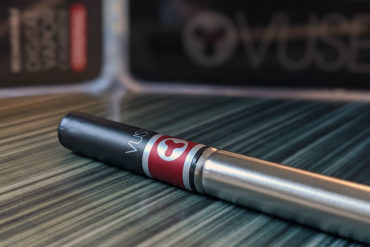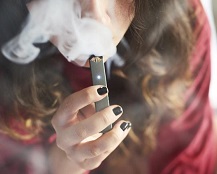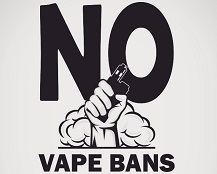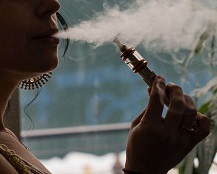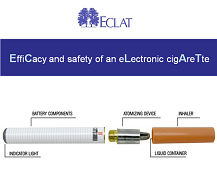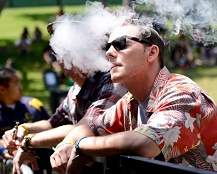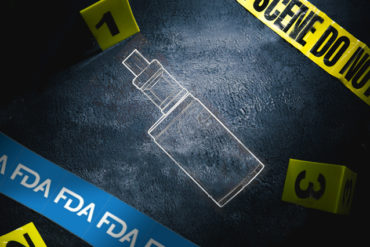The Week in Vaping is back, with a run-down of the latest vaping and tobacco harm reduction related research, a look at recently proposed legislation, regulations and bans on vaping – increasingly frequently stretching outdoors – and some of the best blog posts from the community this week.
The recent revelation that Five Pawns’ extremely expensive e-liquid may be riddled with diacetyl (DA) and acetyl propionyl (AP) brings an important issue to the light once again: the flavorings we inhale might not be good for us. So, what’s the deal with DA and AP in e-liquid? Which are the worst offenders based on the tests available? And can we even trust the results?
The FDA has issued their first approval for an e-cigarette to be sold in the US. The approved vape is the Vuse Solo, a big tobacco-backed device and its accompanying tobacco cartridge.
Recap of the 2013 Electronic Cigarette Convention in Anaheim, CA, presented by West Coast Vapers Club.
Over the last few weeks, reports of a "mystery illness" relating to vaping have been making their rounds, but what's really going on? What do we know so far? Should nicotine vapers be worried? Here's everything you need to know.
TL;DR? Femke Halsema, Amsterdam’s mayor, is looking to ban non-residents from entering the city’s cannabis coffee shops Only Dutch citizens...
Today the Royal Society became the site of the E-Cigarette Summit, a day dedicated to debating the safety, efficacy and regulation of e-cigarettes. The day was split into three sessions, firstly looking at the safety and efficacy, then moving on to regulation, and finally looking at the controversies surrounding the technology.
Day 2 of the Electronic Cigarette Convention in Anaheim featured a workshop on e-cig regulations and e-liquid safety by Azim Chowdhury, Lou Ritter and Linc Williams from AEMSA.
Trump announced recently that he's backing off from the flavor ban. At least for now. While of course a welcomed move from those within the industry, it still leaves a skeptical flavor (excuse the pun) in the mouths of professionals and connoisseurs. That the battle may be won, but the war certainly isn't.
Researchers are spying on your tweets, a judge in New York has been smart enough to declare that vaping is not smoking, more evidence-based rationality emerges from the UK and journalists are given a much-needed dose of common sense on the (non) issue of “e-cigarette battery explosions” – it’s the Week in Vaping.
As everyone has heard by now, the FDA’s disastrous proposal to regulate e-cigarettes as tobacco products has gone ahead with none of the changes vaping advocates may have been hoping for. We wanted continued innovation with improved product standards; we got thinly-veiled prohibition.
“Won’t somebody please think of the children” is one of the core rallying calls of the anti-vaping fanatics, and Cancer Research UK is evidently paying attention.
TL;DR UFC, alongside its anti-doping partner USADA, have relaxed its policy on how cannabis consumption is handled within the sport ...
The effectiveness of electronic cigarettes as a quit smoking aid just received a huge boost with a new Italian study published on the scientific journal PLOS ONE. In the first ever clincal trial on the effectiveness of tobacco reduction and smoking cessation rates using e-cigarettes, ECLAT found up to a 13 percent quit rate in participants over a 52 week period.
The new edition of the Week in Vaping is here, bringing you the news from the vaping world with some occasional snark thrown in for good measure. This week has seen the release of a couple of interesting studies, some typically irrational moves to ban vaping (even outside), and several great posts from across the community and elsewhere.
TL;DR? Gov. Jay Robert “J.B.” Pritzker announced the expungement and forgiveness of over half a million Illinois residents with minor,...
The US Food and Drug Administration has declared a war on vaping products some time ago now. August 8th, 2016 marked...
According to the results, youth use of e-cigarettes doubled between 2011 and 2012, but the truth can’t be crammed as succinctly into a jaw-dropping headline. To see what the results really mean, you need to look at what they actually did and what they actually found.
We’ve written a letter to FDA Commissioner Margaret Hamburg – who has already received a “protect the children” call from the Attorneys General – putting forward the case for e-cigarettes and suggesting how they should be regulated.
With some claims that e-cigarettes are going to give us all cancer, more bans on vaping in Malaysian regions, some irrational state legislation proposed in the US, some positive coverage in the mainstream media, several excellent blog posts and a new coalition of students dedicated to spreading more bullshit about e-cigarettes, it’s the Week in Vaping.

